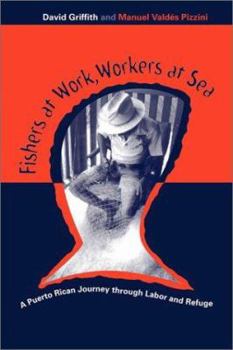Fishers at Work, Workers at Sea: A Puerto Rican Journey Through Labor and Refuge
Select Format
Select Condition 
Book Overview
Small-scale fishing, a household-based enterprise in Puerto Rico, rarely provides sufficient income for a family, but it anchors their culture and sense of themselves within that culture. Even when family members must engage in wage work to supplement household income, they think of themselves as fishers. As the authors say of one of these wage workers: When he was quite young, he left the island to struggle in other lands, to work, to raise a family, to send home the money he earned. Ten, twenty, thirty years passed...during which he did not once fish or even see the ocean. But in a boat-building factory in New Jersey, in a bakery in the Bronx, on the production line of a chemical factory, on dozens of construction sites, every single day he made a mental review of the waters, the isles and cays...and entertained no thought that was not related to his return. Fishers at Work, Workers at Sea describes Puerto Rican fishing families as they negotiate homeland and diaspora. It considers how wage work affects their livelihoods and identities at home and how these independent producers move in and out of global commodity markets. Drawing on some 100 life histories and years of fieldwo This description may be from another edition of this product.
Format:Paperback
Language:English
ISBN:1566399114
ISBN13:9781566399111
Release Date:January 2002
Publisher:Temple University Press
Length:280 Pages
Weight:0.85 lbs.
Dimensions:0.5" x 6.0" x 9.0"
Customer Reviews
1 customer rating | 1 review
Rated 5 starsFishers at Work, Workers at Sea.
By Thriftbooks.com User,
This book represents a twenty plus years journey of two meticulous social scientists through documents of marine anthropology, direct observations of coastal dwellers in the Caribbean and Eastern United States, the life histories of artisan fisherman and the history of Puerto Rico. The authors place the traditional, ancient occupation of fishing within the context of modern globalization to make clear how modern national and...
0Report













